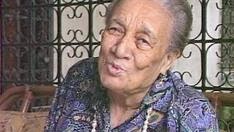It was my dream meet him, and I am sorry I never did. What a man! What a life! I dedicate my poem, 466/64 to this great man. Rest in peace, Madiba.
466/64 (For Nelson Mandela)
In '64, 465 men had gone before
to that lonely island's shore.
#466 came.
Instead of prison bars
he saw stars
that nightly shone;
visions of a day
when a long freedom walk
would signal Apartheid's death knell.
466 left his mark.
He learned their language
got into their head,
got under their skin
until almost defeated
de Klerk had to come to him.
Madiba, gentle man
with a warm smile, a big heart.
The mighty South African army
could not defeat him.
He won, and on his shoulders
with dignity and forgiveness he bore
the aspirations of a people
who said "no more; no more!"
Copyright 2013 Yasmin Morais
466/64 (For Nelson Mandela)
In '64, 465 men had gone before
to that lonely island's shore.
#466 came.
Instead of prison bars
he saw stars
that nightly shone;
visions of a day
when a long freedom walk
would signal Apartheid's death knell.
466 left his mark.
He learned their language
got into their head,
got under their skin
until almost defeated
de Klerk had to come to him.
Madiba, gentle man
with a warm smile, a big heart.
The mighty South African army
could not defeat him.
He won, and on his shoulders
with dignity and forgiveness he bore
the aspirations of a people
who said "no more; no more!"
Copyright 2013 Yasmin Morais




